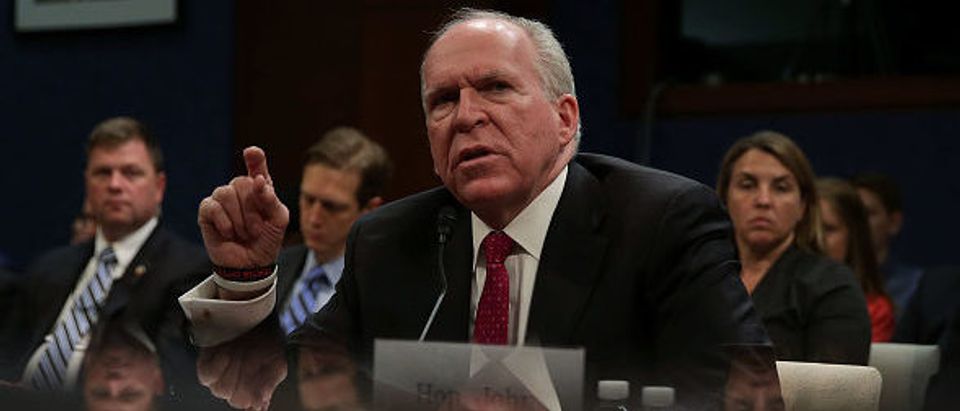Was President Trump correct to cancel John Brennan’s security clearance? Absolutely. No one has a ‘right’ to a clearance either while working for the government or afterward.
But the White House fumbled regarding Brennan’s situation. Brennan should have been one in a list of many former feds who still had active clearances for no credible reason.
If the White House had done a bit of work, it could have found (in my opinion) hundreds of people with clearances that were no longer needed by these persons.
Deep digging might have turned up names from the Clinton and George W. Bush administrations. Undoubtedly, there are former Obama administration officials who maintain their clearances.
First come the names. The next question: what are they doing for a living?
For example, A (former Obama administration official) has a high-level clearance and works for a defense contractor. A continues to be a security asset to the United States, and he/she should have their clearance maintained.
B (former George W. Bush administration official) also has a high-level clearance and is a law professor. C (another past administration alumnus) makes his/her living by sitting on corporate boards, but does no defense-related work. B and C are no longer security assets to the nation; their clearances should be revoked.
Perhaps the President’s chief of staff, retired Marine Corps General John Kelly, could organize a task force to review how security clearances by former federal employees are administered and renewed. The task force should pay special attention to those clearances held by high-ranking officials in the current administration or the former ones.
Having a security clearance, especially a high-level one, opens up many opportunities in the defense contracting sector. If a contractor hires someone with an active clearance, the firm does not have to pay thousands of dollars to have their new employee cleared. The employee’s clearance simply transfers from the security office at his/her former place to work to the new firm.
Therefore, clearances have value in the defense contracting market.
This does not mean, however, that all former federal employees with security clearances get to ‘keep’ them. As in my example above, the person needs to be a security asset to the United States in order to continue having a clearance.
Lastly, the optics would have been much better if John Brennan’s name had been on a list of civilians from both Republican and Democrat administrations that had their clearances revoked. It would have taken longer to prepare a list, but it would have avoided making Brennan an obvious target.
And, in my opinion, a bit of housecleaning regarding security clearances would have been easier to sell to the American public.
Hopefully, someone in the White House taken a lesson learned from this experience. There was a much better way to remove John Brennan’s security clearance: hide it in plain sight.
Joanne Butler, graduate of the Kennedy School at Harvard, was a professional staff member (R) at the House Ways and Means Committee and served in President George W. Bush’s administration.
The views and opinions expressed in this commentary are those of the author and do not reflect the official position of The Daily Caller.


